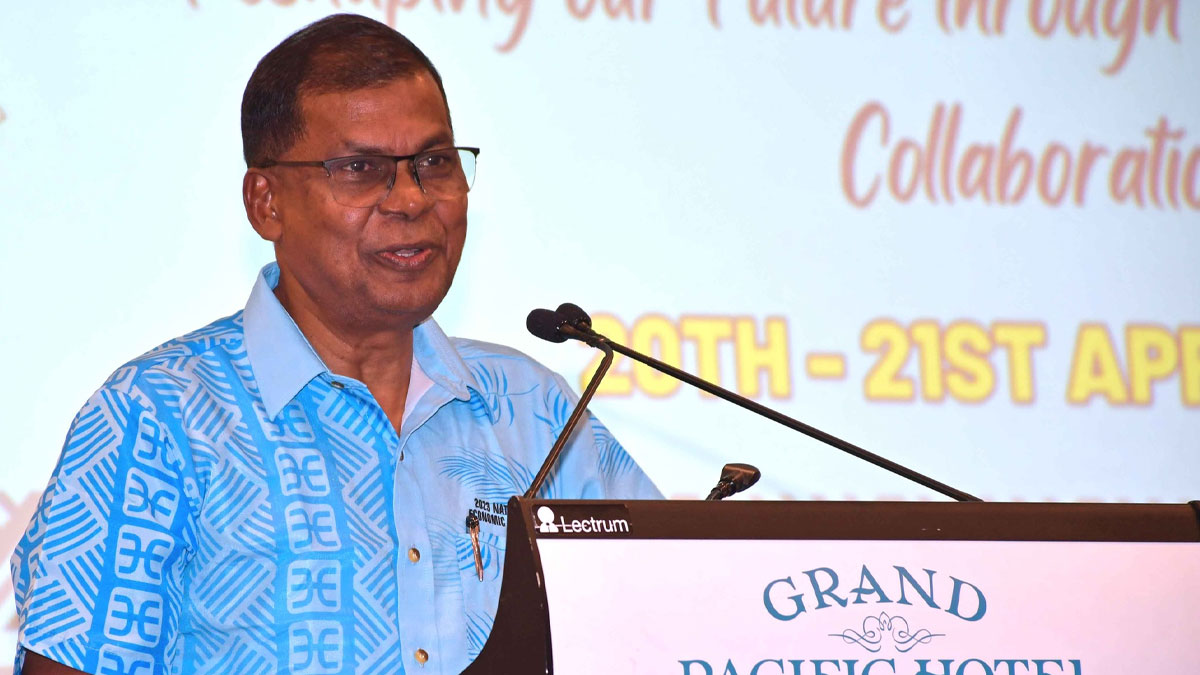
The National Economic Summit has concluded with Deputy Prime Minister and Minister for Finance, Professor Biman Prasad stating they note the urgent demands of the people for solutions to their daily challenges, including the rising cost of living.
Professor Prasad says they will pursue the most sustainable solution to improving cost of living challenges that must come from rising incomes sourced through economic growth.
However, he says short term measures, such as directed and targeted assistance for lower-income households, could be improved with increased Government revenue created by a growing economy.
14 key resolutions have also been agreed to that need to be addressed immediately.
They include a call on Government to immediately prioritize the upgrading and maintenance of Fiji’s water, sewerage supply and waste management systems in urban centres throughout Fiji, with particular attention to the Suva-Nausori corridor.
Professor Prasad says they noted the critical need for Government’s economic strategy to be focused on trusted leadership and good governance, climate change and environmental sustainability and improving the climate for investment and business to thrive; reinforcing the need for sound fiscal discipline in Government in both revenue raising and expenditure to address critical operational and investment needs, to bring Government debt down to fiscally manageable and responsible levels and to engage actively with development partners to capitalise on funding and development opportunities; and noted that good governance demanded better accountability from the legislative, executive and judicial arms of Government to build economic confidence – the legislature to use its processes to build consensus and consistency of policy on important long-term issues such as health, education and key industries.
The summit also wants the executive to be held legally and financially accountable for its actions and decisions; and for the judiciary’s work to become more efficient and timely; underscoring to Government the critical need to upgrade and prioritise its work on human development including in the areas of health, education, housing, youth, women and girls and abuse of children, poverty alleviation; to ensure better community representation in decisions relating to human development. This will require a properly maintained infrastructure to ensure consistent and improved delivery and urging the Government to unleash the potential of rural and outer island areas by providing them the infrastructure and resources needed to begin their own economic transformation.
They are also setting out to Government the urgent need to reform outdated laws holding back the development of land-based economic activities such as agriculture; to ensure biosecurity and related support for exports; and to ensure stronger institutional capacity to respond to the needs of agriculture, including developing the participation of women in agricultural activities.
The summit noted the need for co-ordinated conservation and better regulation of fisheries to develop marine-based activities and a wider, community based approach with additional focused support to improve commercial participation and sustainable commercialization of Fiji’s marine resources.
They also require the Government to urgently upgrade technology based education at all levels and to provide the necessary infrastructure to improve Fiji’s ability to use innovate and create technological solutions and develop high-end technology; recognized the importance of increasing the engagement and empowerment of Fiji’s indigenous population in commerce and business in partnership with other communities and stakeholders.
The summit stressed the need for the indigenous community to leverage its land and natural resources as an asset for direct equity ownership of businesses and commercial ventures in collaboration with key stakeholders, communities, and domestic and international financial institutions – and noting that this may require legislative reforms.
They focused on the importance of efficient and eco-friendly land, marine and transportation systems as critical to Fiji’s sustainable development; recognized the economic and social challenges created by a lack of consistent electricity supply and the need for greater electricity capacity and connectivity, to investigate more effective potential public private partnerships and to focus on renewable and climate resilient energy sources.
The summit endorsed evidence-based policy making as critical to decision-making, and called upon Government to reinvigorate the institutional and planning machinery of each Ministry and its coordination and linkage to the national strategic development policy and planning machinery; and agreed to continue the twelve thematic working groups as a basis of continued consultation and dialogue.
Professor Prasad says a wide cross-section of the community and stakeholders from the private sector, civil society, academia, and industry leaders were invited to participate and contribute towards this important national policy dialogue and consultation process.
He says these discussions will help inform the Government’s short, medium, and long term policies and strategies.
Stay tuned for the latest news on our radio stations

